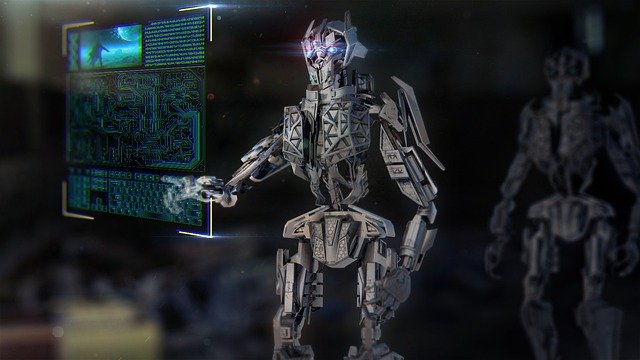Section 1: Introduction to AI Technology in Business
In today’s fast-paced and highly competitive business landscape, companies are constantly seeking ways to gain an edge over their competitors. One of the most powerful tools they have at their disposal is artificial intelligence (AI) technology. AI has revolutionized the way businesses operate, allowing them to streamline processes, improve efficiency, and make data-driven decisions. But AI is not just limited to traditional business functions; it is also transforming the creative industry. In this article, we will explore how AI technology is breaking barriers and enhancing both business and creativity.
Section 2: Enhancing Business Operations with AI
AI technology has the potential to transform every aspect of a business, from customer service to supply chain management. One of the most significant ways AI is enhancing business operations is through automation. By automating routine tasks, businesses can free up their employees’ time to focus on more complex and high-value tasks. This not only increases productivity but also reduces the chances of human error, leading to improved accuracy and efficiency.
Another area where AI is making a significant impact is in data analysis. With the vast amount of data being generated by businesses, it is nearly impossible for humans to analyze and make sense of it all. AI algorithms, on the other hand, can quickly process and analyze large datasets, providing valuable insights and predictions. This allows businesses to make data-driven decisions, leading to better outcomes and a competitive advantage.
Additionally, AI-powered chatbots are revolutionizing customer service. These virtual assistants can handle customer queries and provide support 24/7, freeing up human agents to focus on more complex issues. This not only improves the customer experience but also reduces the cost of customer service for businesses.
Section 3: AI and Creativity: A Match Made in Heaven
Traditionally, creativity has been seen as a uniquely human trait, but AI is changing that perception. With its ability to analyze vast amounts of data and recognize patterns, AI technology is becoming an essential tool for creative professionals. For instance, AI-powered content creation tools can generate written or visual content based on specific parameters, saving time and effort for content creators. This is particularly useful for businesses that need to produce a large amount of content regularly.
AI is also helping businesses personalize their marketing efforts. By analyzing customer data, AI algorithms can identify patterns and preferences, allowing businesses to tailor their marketing messages to individual customers. This not only increases the effectiveness of marketing campaigns but also enhances the overall customer experience.
In the entertainment industry, AI technology is being used to create more immersive and engaging experiences. For example, AI-powered video and music editing tools can analyze emotions and reactions of viewers/listeners and make real-time adjustments to create a more personalized experience. This has opened up a whole new world of possibilities for filmmakers, musicians, and other creative professionals.
Section 4: Overcoming Barriers and Challenges
While AI technology has immense potential to enhance business and creativity, it also faces some barriers and challenges. One of the biggest concerns surrounding AI is the fear of job loss. As AI technology automates routine tasks, there is a fear that it will replace human workers. However, experts believe that AI will not replace jobs but rather augment them, allowing humans to focus on more complex and creative tasks.
Another challenge is the ethical implications of AI. As AI algorithms are trained on data, they can inherit any biases present in that data. This can lead to discriminatory decisions and reinforce societal biases. To overcome this, businesses must ensure that their AI systems are trained on unbiased data and regularly monitored for any biases.
Lastly, there is a lack of understanding and trust in AI technology. Many people are still skeptical about the capabilities and limitations of AI, which can hinder its adoption. Businesses must educate their employees and customers about AI and its benefits to build trust and acceptance.
Section 5: Conclusion
In conclusion, AI technology is breaking barriers and transforming the business and creative landscape. From enhancing business operations to revolutionizing creativity, AI has become an essential tool for companies looking to stay ahead in a highly competitive market. While there are challenges and concerns surrounding AI, its potential to drive growth and innovation cannot be ignored. As businesses continue to embrace AI, we can expect to see even more exciting developments in the future.










